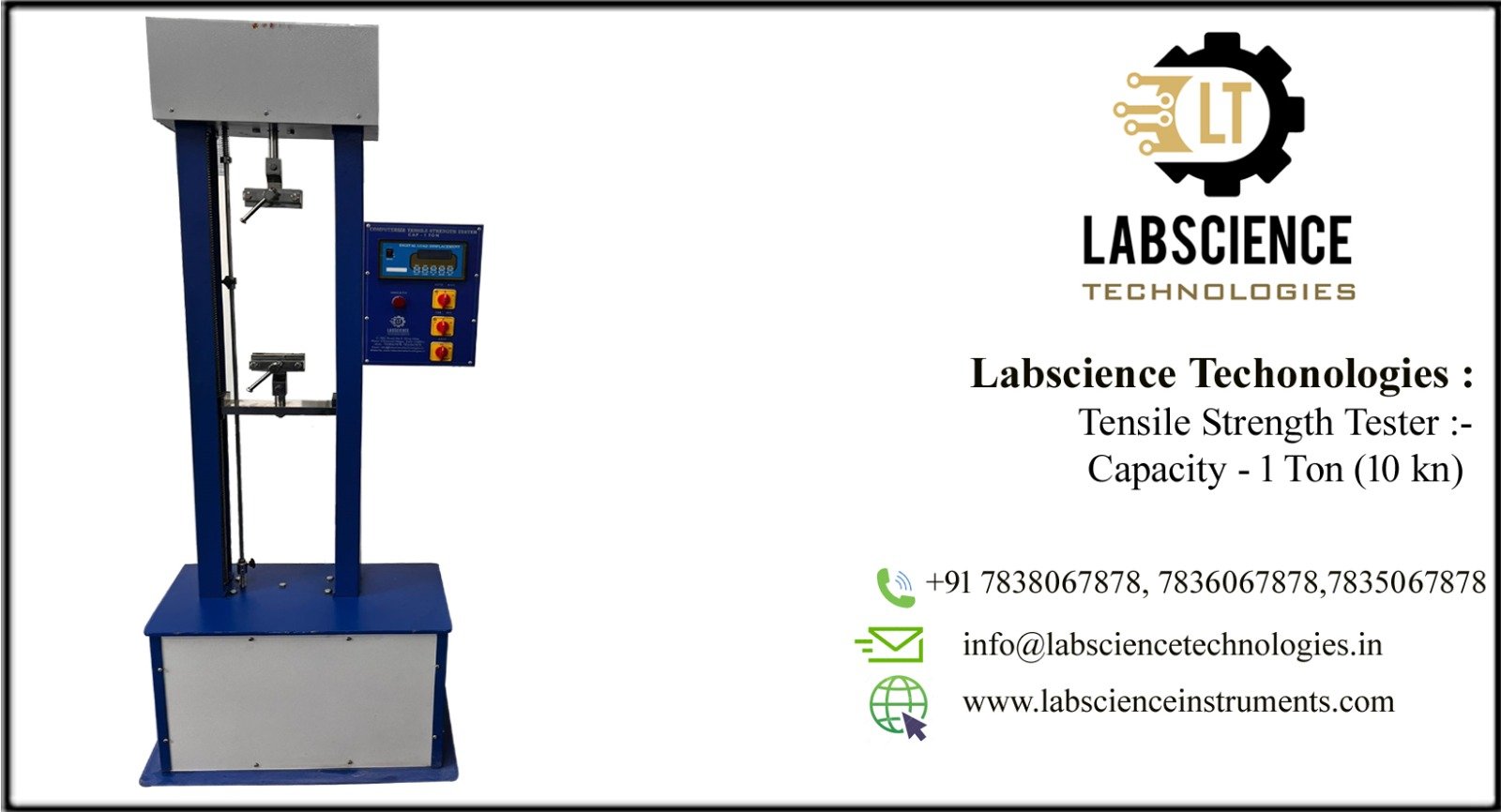Tensile strength testing
Tensile Strength Testing is a critical method used to measure the strength of materials under tension. This test helps to determine how much force a material can withstand before breaking or permanently deforming. The process involves placing a sample material, such as plastic, metal, rubber, or fabric, between the grips of a tensile strength testing machine and applying a controlled tensile (pulling) force. The machine gradually increases the force until the material either stretches to its breaking point or yields under the stress.
The test provides key measurements such as tensile strength (the maximum stress a material can endure), elongation (how much the material stretches before breaking), and Young’s modulus (the material’s stiffness). These values are crucial for determining the performance and durability of materials in various applications, from packaging to construction.
Tensile strength testing is performed according to specific standards such as ASTM D638 for plastics or ASTM A370 for metals. It ensures quality control, helps in material selection, and is essential in research and development for improving material properties. Industries like automotive, aerospace, manufacturing, and plastics rely on tensile testing to ensure their products meet safety and performance requirements.
Tensile Strength Testing is a key process for evaluating how materials perform when subjected to tensile (pulling) forces. This test is crucial for determining the strength, elasticity, and failure point of various materials such as metals, plastics, rubbers, and textiles. Here are some notable features of tensile strength testing:
1. Material Versatility:
Tensile strength testing can be applied to a wide range of materials, including metals, plastics, rubbers, textiles, and composites. This versatility makes it essential for industries like aerospace, automotive, construction, and manufacturing.
2. Precise Data Measurement:
The test provides critical data, including tensile strength (maximum stress before breaking), yield strength (stress at which material begins to deform permanently), elongation at break (the extent of material stretching), and Young’s Modulus (material stiffness). This information helps engineers and manufacturers assess a material’s mechanical properties.
3. Standardization:
Tensile strength tests are conducted in accordance with international standards such as ASTM D638 (for plastics), ASTM A370 (for metals), and ISO 527. These standards ensure the accuracy and reproducibility of results across various industries.
4. Customizable Testing Conditions:
Test speeds, temperatures, and environmental conditions can be adjusted to simulate real-world applications, allowing materials to be tested under specific operational scenarios like high heat or extreme stress.
5. Quality Control & Product Development:
Tensile strength testing plays a vital role in quality control and R&D, ensuring that materials meet industry standards, perform reliably, and are optimized for strength and durability in different applications.
Tensile Strength Testing Specification outlines the procedures for evaluating how materials perform under tensile forces, helping determine their strength, elasticity, and durability. This test is conducted using a universal testing machine (UTM), which applies a controlled pulling force to a material specimen until it stretches, deforms, or fractures.
Key Specifications:
Testing Standards: Testing must comply with recognized standards such as ASTM D638 for plastics, ASTM A370 for metals, ISO 527 for plastics, and ISO 6892 for metals. These standards define the necessary specimen shapes, testing speeds, and data analysis requirements to ensure accuracy and consistency.
Sample Preparation: Test specimens are prepared according to the material and standard in use. For plastics, ASTM D638 requires a dumbbell-shaped specimen, while metals typically use round or rectangular bars in accordance with ASTM A370.
Test Speed and Conditions:
- Test Speed: Typically ranges from 1 mm/min to 500 mm/min, depending on the material and the test’s purpose.
- Temperature: Testing may be done at room temperature or higher, depending on application needs, particularly for materials exposed to extreme environments.
Key Measurements:
- Tensile Strength: The maximum stress the material can endure before breaking.
- Elongation: The percentage the material stretches before failure.
- Yield Strength: The point where permanent deformation begins.
- Young’s Modulus: A measure of the material’s stiffness.
This test is essential for industries like automotive, aerospace, and manufacturing, ensuring materials meet performance, quality, and safety standards.
Kindly fill this form to demand a call-back to from our client support boss with esteeming and details.
Call our Specialists for the Best Deal
+91 7838067878
Call Now
+91 7838067878

